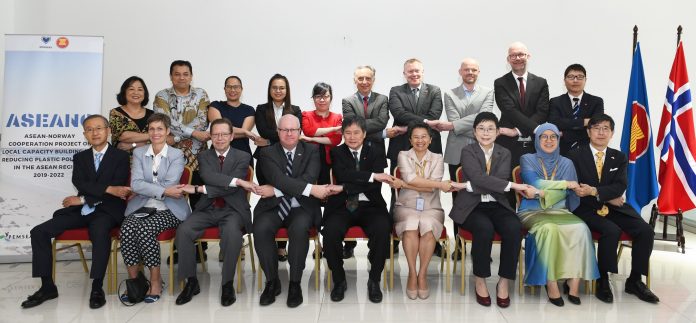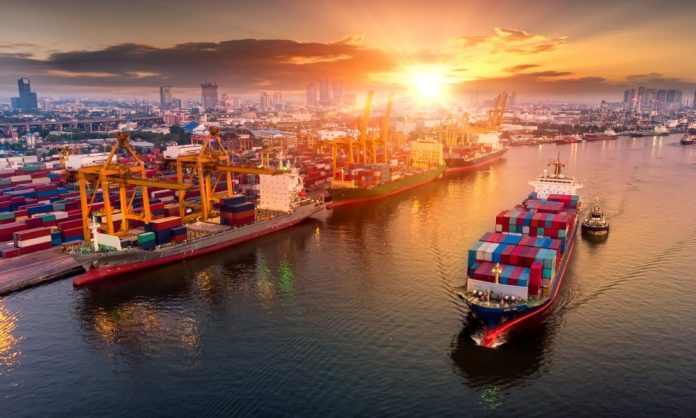JAKARTA, 9 December 2019 – In support of the Association of Southeast Asian Nations’ (ASEAN) efforts in combating marine plastic debris, the Government of Norway launched the ASEAN-Norway Cooperation Project on Local Capacity Building for Reducing Plastic Pollution in the ASEAN Region (ASEANO).
The overall project is funded by a USD 3 million contribution from the Government of Norway under the Norwegian-ASEAN Regional Integration Programme (NARIP) and will be implemented over three years (2019–2020).
ASEANO will support the implementation of the Bangkok Declaration on Combating Marine Debris in ASEAN Region and the ASEAN Framework of Action on Marine Debris. This new initiative aims to enhance cooperation with a range of stakeholders, both formal and informal, to improve plastic management practices along the whole plastic value chain, and to contribute to meeting sound reduction targets through capacity-building and knowledge-sharing.
The project will also develop cost-effective and standardized methods of monitoring plastic waste in rivers and identify key sources of plastic leakage to develop targeted responses. ASEANO will initially focus on selected pilot catchments in Indonesia and the Philippines, with plans of expanding to Vietnam and possibly other ASEAN countries. The knowledge developed will be relevant and transferable to other catchments in the ASEAN region, and will help the ASEAN countries to meet sound reduction targets both nationally and regionally.
‘’The ASEANO project will add to ASEAN’s continuing efforts in addressing marine plastic debris and in promoting a transition to circular economy by learning from Norway’s extensive experience and expertise,’’ said the Secretary-General of ASEAN Dato Lim Jock Hoi.
Permanent Representative of Thailand to ASEAN Phasporn Sangasubana highlighted, “the project is an example of multi-stakeholder effort to follow up on the pledge that our leaders have made to increase public awareness and participation with the aim to change behaviour towards preventing and reducing marine debris. It also reflects the shared commitment to address issues of common concern that ASEAN has with its external partners, especially Norway who has played a leading role in combating marine litter and microplastic both at domestic and international levels.“
“Norway is proud to launch this project with ASEAN in combatting marine litter and microplastics. Healthy oceans are crucial for our planet. We need to act forcefully to stop plastic waste ending up in our rivers and oceans. ASEAN adopted in Bangkok this year a Framework of Action on Marine Debris. Norway is committed to support ASEAN on this important issue,” said Ambassador of Norway to ASEAN Morten Høglund.
The project will be implemented in cooperation with the Norwegian Institute for Water Research (NIVA), Centre for Southeast Asian Studies Indonesia (CSEAS) and Partnerships in Environmental Management for the Seas of East Asia (PEMSEA).
The launch of ASEANO will also mark the kick-off of a week-long workshop in Indonesia where researchers from the implementing partners, i.e. NIVA, CSEAS and PEMSEA, will visit Citarum River in West Java, as one of potential pilot sites of the project.
###







